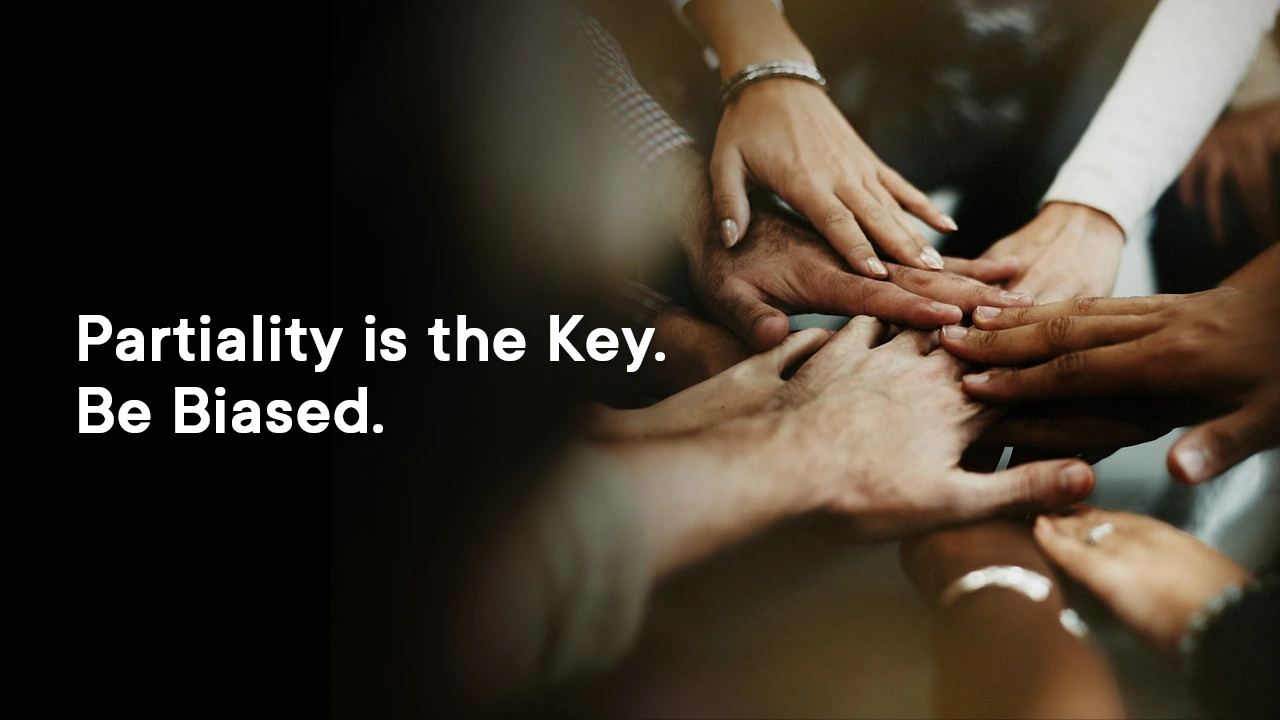Partiality is the Key. Be Biased.
I recently met with the Managing Director of a company with 200-plus employees and 50-plus crore turnover. There was something strange about the company’s culture. Their performing and non-performing employees were all treated the same! Not for a month or two, but for the last two decades. Functioning this way has its benefits like,
-No pointless competition among employees
-No compensation disparity and hence, no grievances
-No anxiety about losing one’s job and
-No employee attrition, whatsoever
But the questions are, is it the right approach?
And even if it is, is it a fair one?
Absolutely not.
And here’s why.
- What you reward, MATTERS.
Nurturing an average performance culture, especially in fields like Website development company, is ineffective at best and toxic at worst. You may believe that you don’t incentivize mediocrity. However, if you fail to acknowledge and recognize top performances, an insidious culture of average performance, tantamount to mediocrity, inevitably takes root. This environment becomes a breeding ground for lethargy, complacency, and a false sense of comfort. While it might appear to external observers that employees are working diligently, the reality is that true excellence is lacking. To foster a thriving and innovative workplace, it is imperative to actively celebrate and reward exceptional performances, thereby cultivating a culture that transcends mediocrity and propels your team towards excellence in website development and beyond..
- No competition but endless gossips.
Employees don’t have business conversations, rather get hooked up to un-healthy gossips, resulting in enormous wastage of time and resources. With no competition, the need for updating themselves with skills, knowledge, and intelligence does not exist, hence, considered needless. Even the best talent that enters this culture becomes unproductive in no time, and it’s no surprise. Complacency begets Complacency.
- People idolized, but not for the right reasons.
In cultures such as these, people who are loud, strong, and muscled get all the attention; and not the ones who are efficient, well-read, and skilled. Insecurity booms in these work cultures. Everyone is insecure about each other and the reasons are unreasonable, unnecessary and straight up silly.
Now, do you treat your best employee and your worst (you know there are) the same?
If you do, it wouldn’t take longer for your best to start acting like your worst, because your action implies that different results make no difference to you.
Treat every employee differently.
Peter Christopher
CEO, Eucto CorporationWebsite development company
Related Posts
New age HR recruiting
Gone are the days when HR professionals used to call hundreds of potential candidates, post ad in newspapers, and online portals to fill up one position. Now as we live in the AI driven world, it will analyze the job description with the candidate’s profile and filter out the required number of candidates, who will meet the recruiter. Of course, this saves a
How to find your perfect job?
Is college solely a place to obtain a degree? Far from it. College serves as a unique environment for individuals to explore and discover their interests. However, the challenge arises when graduates enter the workforce without a clear understanding of job descriptions, without analyzing if a role aligns with their passions. It’s not uncommon for individu
Like Water on Stone
In the year 1970, Shell realised that the world of crude oil was going to change. Shell is known for ‘scenario planning’; the company not only forecasts how the world would change, but by giving importance to uncertainty, they come up with a few possible scenarios. In 1970, every scenario they came up with showed that if they did ‘business as usual’





Leave a Reply